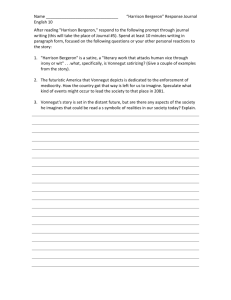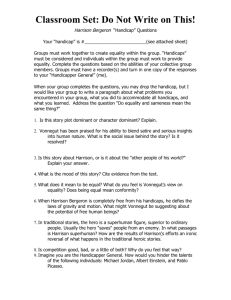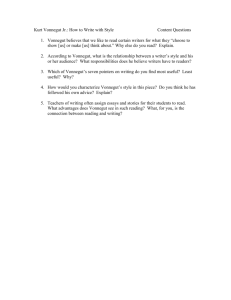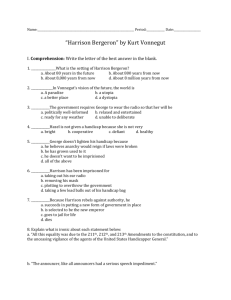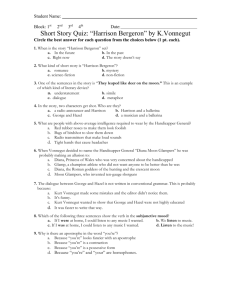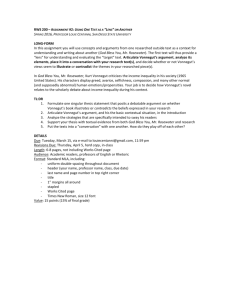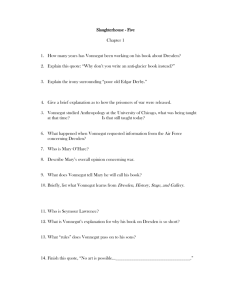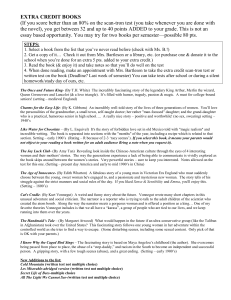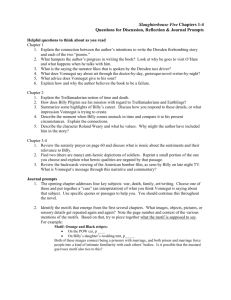Satire: A literary work in which the author ridicules the vices or follies
advertisement
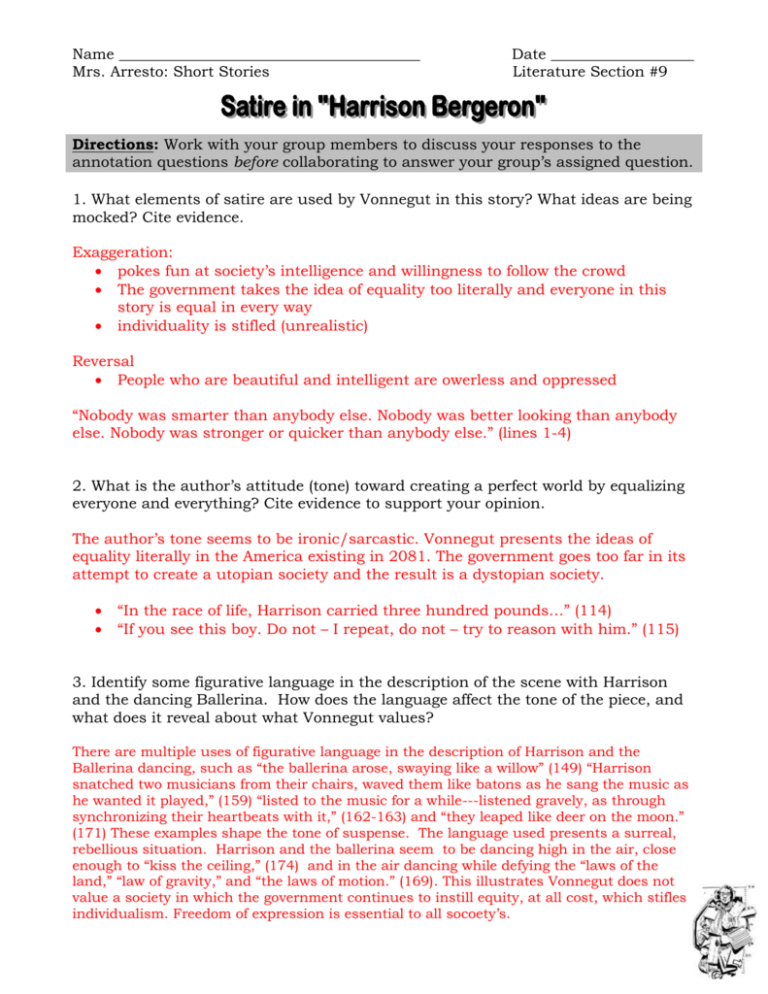
Name ________________________________________ Mrs. Arresto: Short Stories Date ___________________ Literature Section #9 Directions: Work with your group members to discuss your responses to the annotation questions before collaborating to answer your group’s assigned question. 1. What elements of satire are used by Vonnegut in this story? What ideas are being mocked? Cite evidence. Exaggeration: pokes fun at society’s intelligence and willingness to follow the crowd The government takes the idea of equality too literally and everyone in this story is equal in every way individuality is stifled (unrealistic) Reversal People who are beautiful and intelligent are owerless and oppressed “Nobody was smarter than anybody else. Nobody was better looking than anybody else. Nobody was stronger or quicker than anybody else.” (lines 1-4) 2. What is the author’s attitude (tone) toward creating a perfect world by equalizing everyone and everything? Cite evidence to support your opinion. The author’s tone seems to be ironic/sarcastic. Vonnegut presents the ideas of equality literally in the America existing in 2081. The government goes too far in its attempt to create a utopian society and the result is a dystopian society. “In the race of life, Harrison carried three hundred pounds…” (114) “If you see this boy. Do not – I repeat, do not – try to reason with him.” (115) 3. Identify some figurative language in the description of the scene with Harrison and the dancing Ballerina. How does the language affect the tone of the piece, and what does it reveal about what Vonnegut values? There are multiple uses of figurative language in the description of Harrison and the Ballerina dancing, such as “the ballerina arose, swaying like a willow” (149) “Harrison snatched two musicians from their chairs, waved them like batons as he sang the music as he wanted it played,” (159) “listed to the music for a while---listened gravely, as through synchronizing their heartbeats with it,” (162-163) and “they leaped like deer on the moon.” (171) These examples shape the tone of suspense. The language used presents a surreal, rebellious situation. Harrison and the ballerina seem to be dancing high in the air, close enough to “kiss the ceiling,” (174) and in the air dancing while defying the “laws of the land,” “law of gravity,” and “the laws of motion.” (169). This illustrates Vonnegut does not value a society in which the government continues to instill equity, at all cost, which stifles individualism. Freedom of expression is essential to all socoety’s. 4. On page 4 the narration states: “It was then that Diana Moon Glampers, the Handicapper General, came into the studio with a double-barreled ten-gauge shotgun. She fired twice, and the Emperor and the Empress were dead before they hit the floor.” How does this paragraph compare to the description of the dance that comes before it? How does the shift in tone here support the theme? The previous paragraph is carefree and happy. This surreal scene is abruptly ended with two shots from Diana Moon Glampers, the Handicapper General, with a “double-barreled ten-gauge shot gun” and the tone shifts to complete astonishment. The abruptness of this scene, as well as the matter-of-fact diction, show how little control people have over own choices and lives. 5. List two reasons why the author (Kurt Vonnegut) might have written this story. What points do you think he was trying to prove about American society? Vonnegut is warning us that an interpretation of an ‘equal’ society could reinforce an oppressive and totalitarian government. It also begs the question, if everyone is ‘equal,’ who, in fact, is in charge? The story serves as a cautionary tale. It was written in 1961, during which time America was engaged in the Cold War. Additionally, communism was prevalent. Vonnegut highlight’s the destructiveness of this type of government through the totalitarian government in this fictional 2081 America. Rather than allow individual expression and full realization of each person’s ability, the government, who wants to retain control, is forced to oppress any semblance of true thought or idea that could conceivably be a threat to the existing order, which is why Harrison’s televised rebellion, consisting of merely attempting to become his real self was met with the Handicapper General. When she wordlessly guns down the Emperor and the Empress, she solidifies Vonnegut’s warning that a society that discourages true thought and emotion, even in the name of “equality,” must do so through fear and oppression, and ultimately sacrifices humanity itself.

